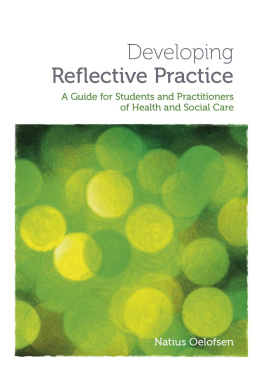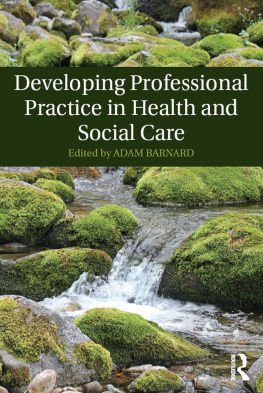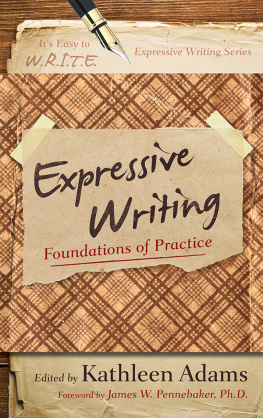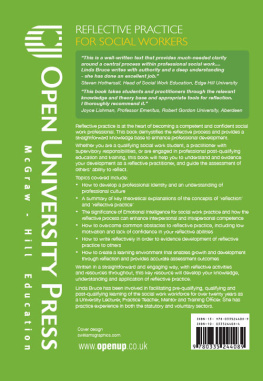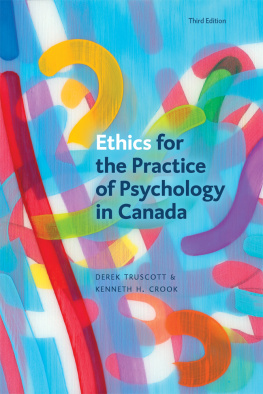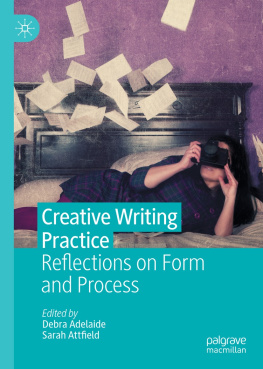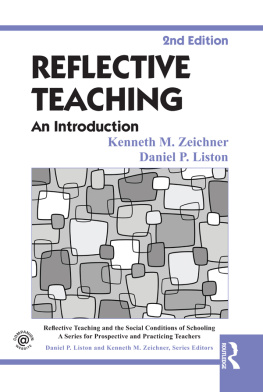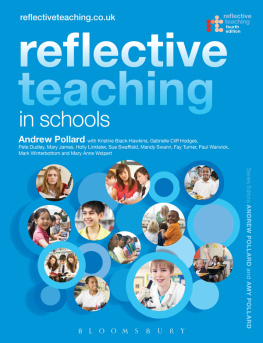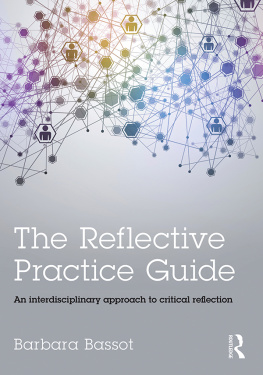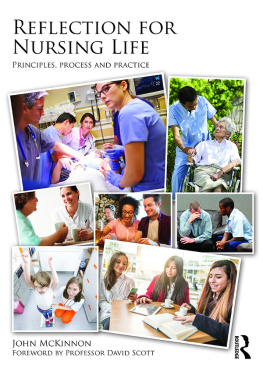Praise for the Fourth Edition
This is a brilliant means of teaching students how to write in a reflective manner, allowing for the exploration of their skills, knowledge and values.
Audrey Roulston, Queens University Belfast
Excellent resource for lecturers training future teachers and expanding their understanding of key issues and developing them as reflective practitioners.
Gwyn Ellis, Bangor University
This is an excellent text to accompany our initial MA module on research, reflection and professional practice. Students have found it a really helpful resource to extend knowledge and understanding of reflective practice.
Nicola Kemp, Canterbury Christ Church University
A very detailed, easy to follow textbook suitable for undergraduate students. Step-by-step guide to good reflective practice with examples to follow. Discuss current theories with regard to reflective practice and how they can be applied by students. A useful textbook.
Rhiannon Parker, University of South Wales
Reflective Practice
Writing and Professional Development
Fifth Edition
- Gillie Bolton
- With Russell Delderfield
SAGE Publications Ltd
1 Olivers Yard
55 City Road
London EC1Y 1SP
SAGE Publications Inc.
2455 Teller Road
Thousand Oaks, California 91320
SAGE Publications India Pvt Ltd
B 1/I 1 Mohan Cooperative Industrial Area
Mathura Road
New Delhi 110 044
SAGE Publications Asia-Pacific Pte Ltd
3 Church Street
#10-04 Samsung Hub
Singapore 049483
Gillie Bolton and Russell Delderfield 2018
First edition published 2000. Reprinted 2003 (twice), 2004
Second edition published 2005. Reprinted 2008, 2009 (twice)
Third edition published 2010. Reprinted 2010, 2012, 2013 (twice)
Fourth edition published 2014. Reprinted 2015, 2017 (twice)
Apart from any fair dealing for the purposes of research or private study, or criticism or review, as permitted under the Copyright, Designs and Patents Act, 1988, this publication may be reproduced, stored or transmitted in any form, or by any means, only with the prior permission in writing of the publishers, or in the case of reprographic reproduction, in accordance with the terms of licences issued by the Copyright Licensing Agency. Enquiries concerning reproduction outside those terms should be sent to the publishers.
Library of Congress Control Number: 2017952666
British Library Cataloguing in Publication data
A catalogue record for this book is available from the British Library
ISBN 978-1-5264-1169-3
ISBN 978-1-5264-1170-9 (pbk)
Editor: James Clark
Assistant editor: Robert Patterson
Production editor: Tom Bedford
Copyeditor: Elaine Leek
Proofreader: Bryan Campbell
Indexer: Martin Hargreaves
Marketing manager: Lorna Patkai
Cover design: Sheila Tong
Typeset by: C&M Digitals (P) Ltd, Chennai, India
Printed in the UK
Dedicated to all who heal, care and educate.
Knowledge is limited. Imagination encircles the world. (Albert Einstein)
Try to love the questions themselves like locked rooms and like books that are written in a very foreign tongue. Do not now seek the answers, which cannot be given to you. Live the questions now. (Rainer Maria Rilke)
About the Authors
Gillie Boltonhas now retired from a long and happy career. Based at the University of Sheffield University, then Kings College London, she developed the field of reflective practice writing with a wide range of professionals. She has a Masters in Social Anthropology from the University of Cambridge and a PhD from Norwich Medical School. Now granny of three, she is also focusing upon her own writing.Russell Delderfieldhas been involved in education for almost twenty years. Initially working as an English language teacher in both France and Spain, he then trained and worked as a primary class teacher. Later he became part of senior management in primary education, before a stint as a teacher trainer. Now he teaches doctoral researchers at the University of Bradford, having completed his PhD (on male eating disorders). Reflective practice has been a constant part of his professional life, and it influences his reflexive approach to conducting research.
Foreword
This new edition of Gillie Boltons Reflective Practice: Writing and Professional Development demonstrates its enduring relevance for practitioners. Reflecting on the meaning of events and constructing experience from these is as old as human thought and, I would argue, central to any attempt to lead a significant life. Indeed, as Habermas argues, the interesting question is not so much how this happens, but rather when it doesnt happen what political forces are preventing it?
Of course being reflective is not necessarily inherently accurate or valid. After all, we can live through any number of events and construct bizarre or harmful interpretations of these. In my practice as, variously, a community developer, adult educator, university teacher and academic leader, I have reflected on how to respond to silence in multiple situations, only to discover later that my readings of its cause and meaning were wildly inaccurate. My personal life is full of misplaced reflection, such as thinking for many years that the way to deal with my depression was to tell myself to snap out of it, or my lifelong belief that I have successfully resisted any socialisation into the ideology of White supremacy.
We all make micro-decisions in the middle of meetings, case conferences, lesson units, consultations, ward rounds and conversations. Clinicians call the quick scan of situational cues, and the decisions and actions that are framed by these, the process of clinical reasoning. All of us do this constantly and we often rely on posing a mental checklist to ourselves to ensure we have done it well. Are my assumptions about why this is the right thing to do accurate? Have I missed a perspective on this situation that would reframe it differently? How can I draw on lessons Ive learned from previous similar situations Ive negotiated?
Gillie argues forcefully and persuasively that conducting these kinds of internal dialogues is not enough and that an essential component of reflective analysis is writing. Individual introspection and talking to colleagues and comparing notes are certainly crucial but there is something fundamentally different about writing down your understanding of, and reaction to, a situation. As you see the words appear on the screen or page in front of you, you are confronted almost with a second self and you often learn both pleasurable and disturbing things about that self that take you wholly by surprise.
In clear and lively prose Gillie builds her case for the importance of writing and provides numerous examples of helpful activities and exercises, not only in this book but also in the website constructed to accompany it. Narrative and story are powerful tools in multiple human contexts, conveying the essence of what we are trying to accomplish. We remember stories far more readily than we do mission or goal statements. Similarly, metaphors can galvanise a group, communicating in a shorthand way a vision of where we wish to go in a project. When we write our reflections on events we not only create meanings for ourselves, we produce a version that can be communicated to others.


